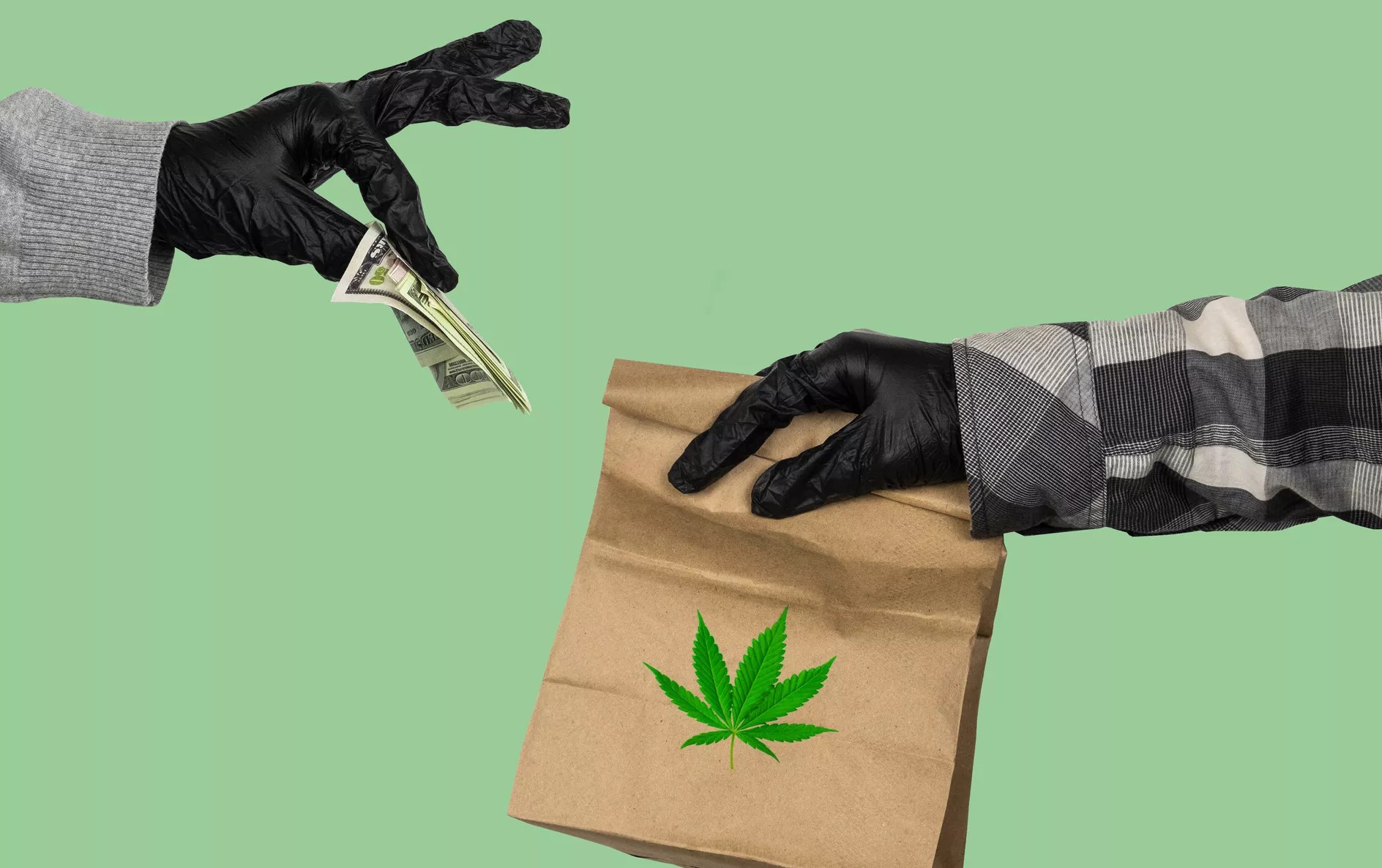
dvulikaia/Getty Images

Audio By Carbonatix
Too tired, drunk or stoned to go out and buy weed? Starting Friday, that’s a problem of the past in Arizona.
In a major policy change, the Arizona Department of Health Services will allow adult-use recreational cannabis delivery starting Nov. 1. Previously, only medical marijuana delivery was legal.
The decision came two months early for dispensaries – the department was required by law to make rules to regulate delivery by Jan. 1, 2025. Marijuana industry professionals are hoping weed delivery will make buying cannabis products more convenient for customers and boost stagnating sales.
Joseph Strauss, chief operating officer of licensed dispensary LunchBox, told Phoenix New Times he’s been anticipating the shift in policy. For a year, he has planned to turn the company’s Sonoita store into a statewide logistics hub and hire 15 full-time drivers.
“We’re really excited about the market,” Strauss said. “We feel that a lot of money has been left on the table with sales going to the black market because of simple convenience.”
Indeed, sales have been on the decline in Arizona. Data from the state’s Department of Revenue put September recreational marijuana sales just shy of $67 million, the lowest figure since January 2022.
Strauss thinks that’s because buying weed has been more difficult than it needs to be
“If you’re a single mom and you have your kid in the back of the car, you’re probably unlikely to stop at the dispensary on the way home,” Strauss said. “A lot of these kinds of restrictions, although subtle, actually have a dramatic impact.”
According to the Department of Health Services, there are 161 recreational dispensaries across the state, and being able to deliver their product could boost sales.
There are plenty of rules, of course. Delivery vehicles are required to be unmarked and product packaging must be discreet. Drivers are required to check the ID of the person accepting deliveries, making sure it matches the name on the order and that the customer is ages 21 or older.
Delivery vehicles may not carry more than $10,000 of marijuana products and may not sell products that weren’t included in delivery orders. In addition, AZDHS rules prohibit deliveries from being made to properties owned or leased by the state or federal government.
“The process is very safe. It’s compliant, just like any other industry,” Strauss noted.
Demitri Downing, the founder and president of Arizona’s Marijuana Industry Trade Association, told New Times the move will make cannabis delivery as “commonplace as UberEats,” something he notes was unimaginable not long ago.
“This is a great step forward for Arizona,” Downing said. “As prohibition and the drug war end, unique moments like this will come about where we have legitimate tax and regulated enterprises doing something that 30 years ago would have been dangerous and done in the black market. Arizona should be proud of itself.”